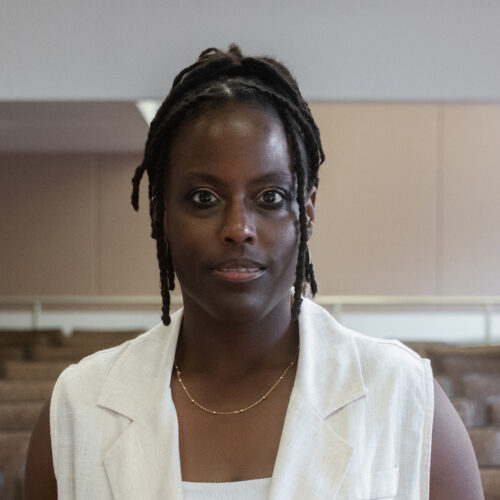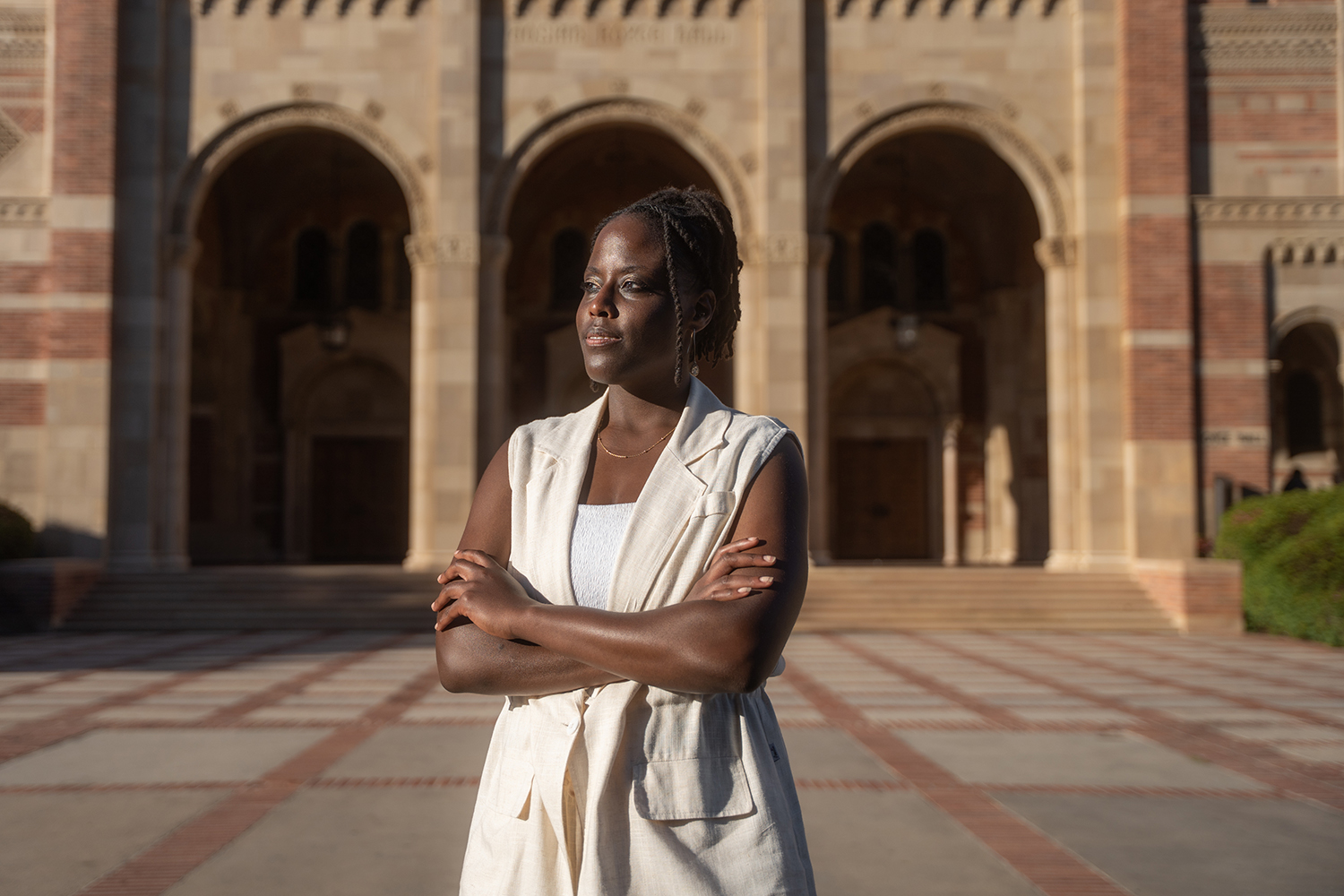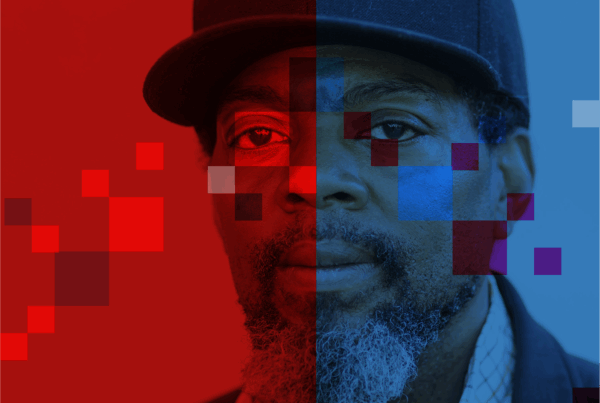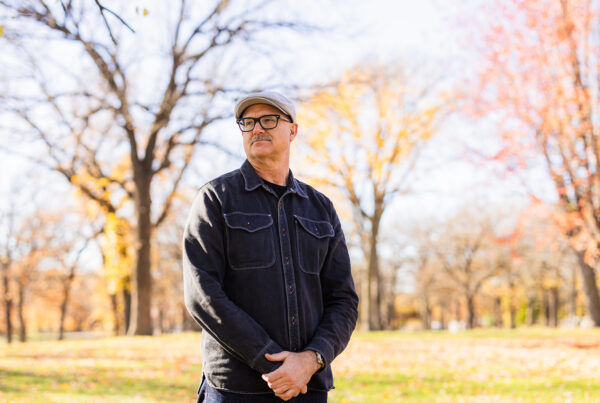Sociologist Faith Deckard on how commercial bail makes families the hidden workforce of pretrial justice
When Faith Deckard reached her first spring in graduate school, she was trying to be “objective.” She had entered the University of Texas at Austin to study the criminal justice system but, wary of the “me-search” label often pinned on scholars of color, swerved toward a safer topic. “If you look at my C.V., you’ll see that one of my first publications was on debt stress while Black and Latino students are enrolled in college,” she says. “That was me trying to distance myself from the criminal legal system and find something else that was of interest.”
Then her phone rang. Her younger brother had been arrested for marijuana possession. “I was in grad school at the time and basically was the person in my family who had expendable funds because I was on a scholarship,” she recalls. She wired money through MoneyGram to get him out – twice in one month. Around the same time, she read a short piece by sociologist Joshua Page about becoming a bail agent for a year. “I was like – wait a minute – people are actually studying this thing. It hadn’t yet occurred to me that this is a topic of research interest for people.” Page studied the industry from the top down, looking at insurers, agencies, and the competition and profit throughout. Deckard realized what was missing. “The bottom-up perspective or how families were navigating that process. And so I was like, well, I know something about a family navigating this process.”
That decision, rejecting the notion that closeness to harm undermines rigor, set the course for her work. Deckard earned her Ph.D. in sociology at the University of Texas at Austin and recently joined the University of California, Los Angeles (UCLA) as an assistant professor. Her fields – crime and punishment, family, and money – interlock neatly in the commercial bail system. “It sort of sits at the nexus of all of those things,” she says.
“They think women will be moved to use whatever resources they have, not just financial resources but also social resources.”
Deckard’s research in Harris County, Texas is both intimate and institutional. She interviewed defendants and co-signing relatives, interned inside three commercial bail agencies, and interviewed agents. “If I want to understand families, I have to understand bail agents. They’re so interwoven in this industry. It’s like I couldn’t understand one without understanding the other.” Like Josh Page, she quickly saw a pattern: agents steer toward women, especially mothers and grandmothers, based on gendered, racialized stereotypes about care, control, and stability. “One of their first questions is well, where’s your mom/abuela/wife?” she says. “They think women will be moved to use whatever resources they have, not just financial resources but also social resources.” As one agent she interviewed put it, “Mothers in particular, they’re going to be the ones to put their hand on that person, so the cop doesn’t have to.”

”I saw someone get charged 50%! Sometimes these discretionary prices are nonrefundable, so you don’t get anything back. Other times, you give 50% upfront, for example, and if the case goes well, you get 40% back.
Dr. Faith Deckard
Deckard doesn’t dismiss that logic outright. “They’re not wrong, but the world is much more complex than that,” she says. “There are women who don’t show up, and there are men who would love to be on the hook and would love to get the chance to show up for their loved ones in that way, but they get excluded because they don’t fit the image agents have in their head.” She found that bail bond agents use discretion in setting prices, relying on intuition rather than law. “Standard practice is 10% [of the total bail amount], and I did see agents mostly holding to that, but they have the discretion. If there was a case that they felt wasn’t as secure, they would charge more, say 20%. If you are undocumented, you pay more. I saw someone get charged 50%! Sometimes these discretionary prices are nonrefundable, so you don’t get anything back. Other times, you give 50% upfront, for example, and if the case goes well, you get 40% back.”
Even when families could pay, they often struggled to find a cosigner who met agencies’ criteria. “There were so many families who had the money. The problem was finding a co-signer that held up to agency expectations.” Beyond certain types of social relationships, agents prioritized people with long-term jobs, stable addresses, children, or homeownership, whom they viewed as less likely to flee. “If you have kids, that means you’re probably not going to run off,” Deckard explains. “If you’ve been at your same address for five or six years, you’re probably embedded here.”
“They displace the responsibility onto families.”
The result, she says, is a system that converts family into unpaid infrastructure. “They displace the responsibility onto families.”
After bail is set, agents recruit relatives – most often women – to serve as co-signers, vetting them for “stability” through job history, home ownership, and family ties. These co-signers pay a nonrefundable fee and sign contracts making them financially liable if the defendant misses court. Once the bond is posted, agents rely on these relatives to monitor, remind, and even locate the defendant – essentially turning love into unpaid supervision. If anything goes wrong, the company keeps its fee while families bear the stress, debt, and fallout.
“That’s the hidden workforce that makes this system work,” Deckard says.
She saw how that work reshapes relationships. Co-signers sometimes use their leverage to enforce loyalty or obedience, while defendants chafe under the authority of mothers or partners. “It distorts power, it confuses love with control. It turns the home into an extension of a jail cell in some ways. The agency is this dark shadow, but then the agency makes your family become that dark shadow.”
For men, the experience can be humiliating. “Men are carrying so much shame. It’s such a disempowering thing, right? Like, I can’t even get out on my own merit. I have to get out because somebody in my life is vouching for me.” They often feel they can’t confide in family members turned overseers. “It’s such a dehumanizing process,” she says. “They just hate it.”
Deckard tells the story of Yvette, a Black woman who scrambled to free her half-brother. Their father offered money but refused to cosign because of his own record. Their mother, a police officer, couldn’t spare time to go to the office. An aunt would give money but not sign. Yvette, the youngest adult in the family, failed a one-year employment requirement after a COVID layoff. After months, the father’s new wife, steadily employed and married, finally qualified. “This is something that gets lost when we think about inequality only in terms of money,” Deckard says. “It wasn’t the money this time. The problem was finding a co-signer who was willing and that fit the bill. Not all families can mobilize this kind of person…quickly or at all.”
She also recalls a white family in which a sister reluctantly posted bond for her brother at their dying mother’s request. “Her mom was like, my dying wish is to have my son here at home. And so the sister goes, you know what, Mom? I can’t say no to that.” The brother disappeared after release, fracturing the family. “I don’t want to be a snitch,” the sister told Deckard, “but I know [where he is], and I’m not afraid to share this location” to avoid financial ruin.
“If you design a bail system that requires people to pay, you have created a market. You have created customers.”
Deckard resists easy villains. “As critical as I am of agents, I don’t want to stop at that,” she says. “If you design a bail system that requires people to pay, you have created a market. You have created customers. And so if that’s the design, this industry does fill a pocket.” Agents act to protect themselves from loss; families feel grateful in the moment because there’s nowhere else to go. Speaking from the perspective of those families, she says, “We’ll take it – but then they’ll take from us.”
Deckard’s forthcoming book argues that commercial bail succeeds not because it selects compliant defendants or monitors effectively but because it outsources responsibility. “It’s a flawed system, and the commercial industry flows from that,” she says.
Her work names what families already know: love is labor, and in America’s pretrial market, labor is leveraged. Freedom shouldn’t depend on who in your life can be found, financed, and put on paper. “Even among people who can afford it,” she says, “it still doesn’t feel like freedom.”
Thank you for reading. The Bail Project is a 501(c)(3) nonprofit organization that is only able to provide direct services and sustain systems change work through donations from people like you. If you found value in this article, please consider supporting our work today.











